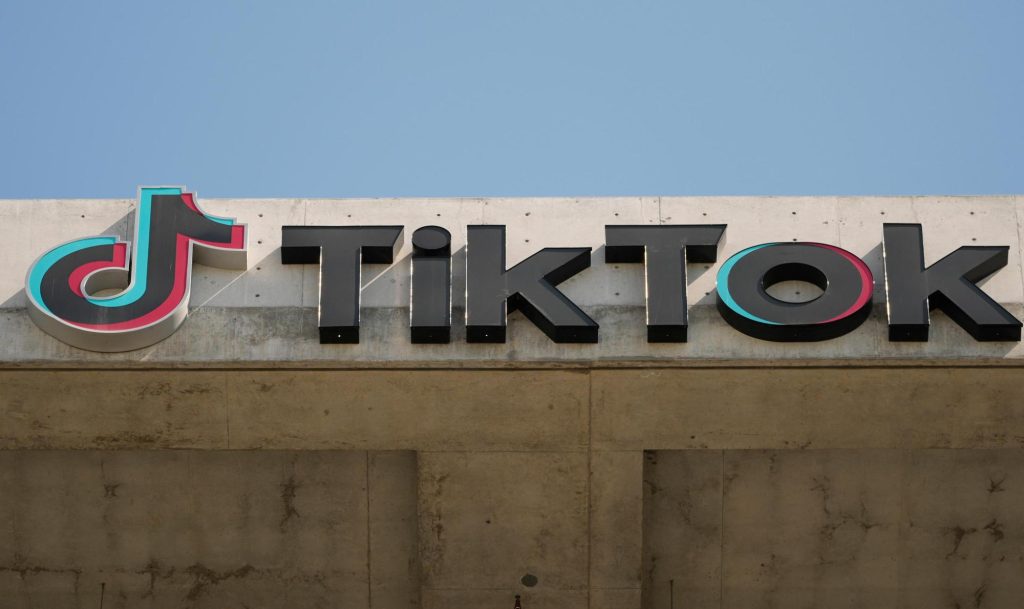By KEVIN FREKING (Associated Press)
WASHINGTON (AP) — Lawmakers expect a bill that could result in TikTok being banned in the U.S. to be approved by the House on Wednesday due to concerns about the company's ownership posing a threat to national security.
The bill would make the Chinese company ByteDance sell off TikTok and its other apps within six months of the bill being passed, or those apps would be forbidden. Lawmakers argue that ByteDance is tied to the Chinese government, which could demand access to TikTok user data in the U.S. at any time. This concern stems from Chinese laws that require organizations to assist with intelligence gathering.
Passing the bill in the House would only be the initial step. The Senate would also need to pass it for it to become a law, and lawmakers in the Senate indicated that it would undergo a thorough review. Senate Majority Leader Chuck Schumer, D-N.Y., said he would need to consult with relevant committee chairs to decide the bill's path.
President Joe Biden has stated that if the measure is passed by Congress, he will approve it.
The House vote is set to create a new conflict between lawmakers and the tech industry. Lawmakers have been critical of tech platforms and their extensive influence for a long time, often clashing with executives over industry practices. By focusing on TikTok, lawmakers are singling out a platform popular with millions, many of whom are younger, just months before an election.
Ahead of the House vote, a top national security official in the Biden administration held a closed-door briefing with lawmakers on Tuesday to discuss TikTok and the national security implications. Lawmakers are weighing security concerns against a desire not to limit free speech online.
“We have made a careful effort to compel TikTok to sell off without giving any authority to the executive branch to regulate content or target any American company,” said Rep. Mike Gallagher, the bill's author, as he came out of the briefing.
TikTok has consistently denied that it could be used as a tool of the Chinese government. The company has stated that it has never shared U.S. user data with Chinese authorities and will not do so if asked. So far, the U.S. government has not presented any evidence showing that TikTok shared such information with Chinese authorities. The platform has around 170 million users in the U.S.
The security briefing appeared to change few minds, instead reinforcing the opinions of both sides.
“We have a national security duty to prevent America’s most strategic adversary from being so involved in our lives,” said Rep. Nick LaLota, R-N.Y.
But Rep. Robert Garcia, D-Calif., stated that no information has been shared with him to convince him that TikTok is a national security threat. “My opinion, leaving that briefing, has not changed at all,” he said.
Garcia said banning small business owners and entrepreneurs from using the main way young people communicate with each other is insane.
Rep. Sara Jacobs from California said that everything they heard in the classified briefing about TikTok was not unique to the app and happens on every social media platform.
Republican leaders have quickly moved to bring up the bill after it was introduced last week. A House committee unanimously approved the legislation, even after receiving many calls from TikTok users demanding they drop the effort. Some offices even shut off their phones due to the onslaught.
Lawmakers in both parties are eager to confront China on various issues. The House established a special committee to focus on China-related issues, and Schumer directed committee chairs to start working with Republicans on a bipartisan China competition bill.
Senators are open to the bill but don't want to rush ahead.
Sen. Ron Wyden from Oregon said that moving fast in technology is not a redeeming quality because history shows that mistakes are often made.
House Republicans are moving forward with the legislation and creating a rare difference from former President Donald Trump as he seeks another term in the White House.
Trump has opposed the effort, stating that he still believes TikTok poses a national security risk but is against banning the app because it would benefit its rival, Facebook, which he continues to criticize over his 2020 election loss.
As president, Trump tried to ban TikTok through an executive order, calling the spread of mobile applications developed and owned by Chinese companies a threat to the national security, foreign policy, and economy of the United States. The courts, however, blocked the action after TikTok sued, arguing it would violate free speech and due process rights.









